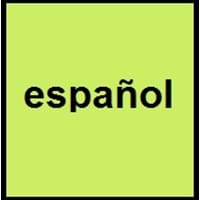Countries
Andora, Argentina, Aruba, Australia, Belize, Bolivia, Brazil, Canada, Chile, Colombia, Costa Rica, Cuba, Dominican Republic, Ecuador, El Salvador, Equatorial Guinea, France, Gibraltar, Guatemala, Honduras, Jamaica, Latvia, Luxembourg, Mexico, Morocco, Namibia, Netherlands Antilles, New Zealand, Nicaragua, Norway, Panama, Paraguay, Peru, Philippines, Puerto Rico, Russia, Spain, Sweden, Switzerland, Trinidad and Tobago, Turkey, United Kingdom, United States of America, Uruguay, Venezuela, Western Sahara
Galicia
National Language
Spain
Galicia
Second Language
Andora, Aruba, Australia, Austria, Belgium, Belize, Brazil, Bulgaria, Canada, Denmark, France, Germany, Ireland, Israel, Italy, Jamaica, Luxembourg, Morocco, Netherlands, Netherlands Antilles, New Zealand, Philippines, Poland, Portugal, Romania, Russia, Slovenia, Switzerland, Trinidad and Tobago, Turkey, United Kingdom, United States of America, US Virgin Islands
Not spoken in any of the countries
Speaking Continents
Africa, Asia, Europe, North America, South America
Europe
Minority Language
Brazil, France, Germany, Italy, Japan, Morocco, United Kingdom
Not spoken in any of the countries
Regulated By
Asociación de Academias de la Lengua Española
Royal Galician Academy (Real Academia Galega)
Interesting Facts
- One of the world's most phonetic language is Spanish.
- Up to the 18th century, Spanish was diplomatic language.
- In Galician language, there are no compound tenses.
- The earliest document in Galician language was written in 1228 which was legal charter for a municipality of Galicia.
Similar To
French Language
Portuguese Language
Alphabets in
Spanish-Alphabets.jpg#200
Galician-Alphabets.jpg#200
Writing Direction
Left-To-Right, Horizontal
Left-To-Right, Horizontal
Language Levels
Not Available
Time Taken to Learn
Not Available
How Are You?
Cómo estás?
Que tal estás?
Good Night
Buenas Noches
Boas noites
Good Evening
Bonne soirée
Boa tarde
Good Afternoon
Buenas Tardes
Boa tarde
Good Morning
Buenos Días
Bos días
Please
Por Favor
Por favor
I Love You
Te Quiero
Ámote
Excuse Me
Discúlpeme
Perdoe!
Dialect 1
Mexican Spanish
Eastern Galician
Where They Speak
Mexico
East Galicia
How Many People Speak
Not Available
Dialect 2
Cuban Spanish
Central Galician
Where They Speak
Cuba
Central Galicia
How Many People Speak
Not Available
Dialect 3
Puerto Rican Spanish
Western Galician
Where They Speak
Puerto Rico
West Galicia
How Many People Speak
Not Available
Speaking Population
Not Available
Second Language Speakers
Not Available
Native Name
Español
Galego
Alternative Names
Castellano, Castilian, Español
Galego, Gallego
French Name
espagnol; castillan
galicien
German Name
Spanisch
Galicisch
Pronunciation
[espaˈɲol], [kasteˈʎano]
[ɡaˈleɣo]
Ethnicity
Not Available
Not Available
Language Family
Indo-European Family
Indo-European Family
Subgroup
Romance
Not Available
Branch
Not Available
Not Available
Early Forms
Old Spanish and Spanish
Medieval Galician
Standard Forms
Pluricentric Standard Spanish
Galician
Language Position
Not Available
Signed Forms
Signed Spanish
Not Available
Scope
Individual
Individual
ISO 639 6
Not Available
Not Available
Glottocode
stan1288
gali1258
Linguasphere
51-AAA-b
51-AAA-ab
Language Type
Living
Living
Language Linguistic Typology
Subject-Object-Verb
Not Available
Language Morphological Typology
Fusional, Synthetic
Not Available
Spanish and Galician Speaking population
Spanish and Galician speaking population is one of the factors based on which Spanish and Galician languages can be compared. The total count of Spanish and Galician Speaking population in percentage is also given. The percentage of people speaking Spanish language is 6.15 % whereas the percentage of people speaking Galician language is Not Available. When we compare the speaking population of any two languages we get to know which of two languages is more popular. Find more details about how many people speak Spanish and Galician on Spanish vs Galician where you will get native speakers, speaking population in percentage and native names.
Spanish and Galician Language Codes
Spanish and Galician language codes are used in those applications where using language names are tedious. Spanish and Galician Language Codes include all the international language codes, glottocodes and linguasphere.





